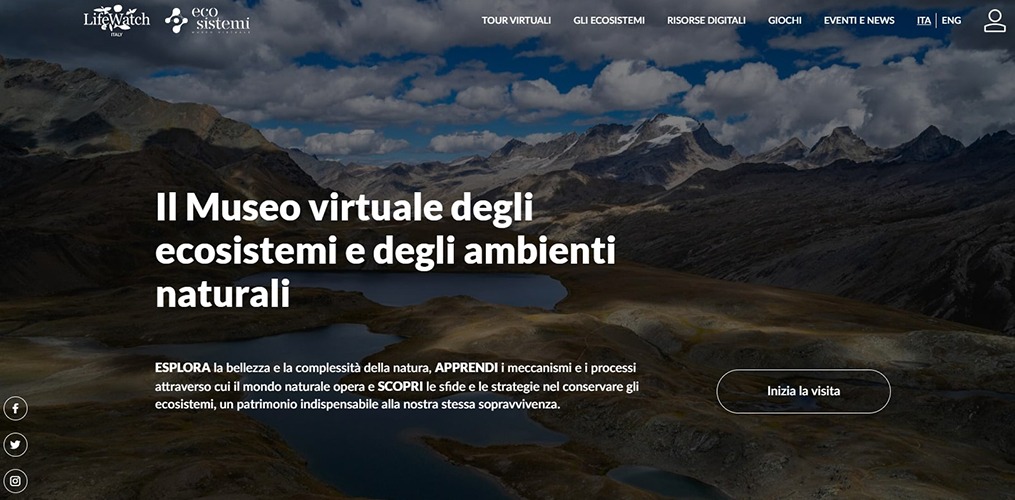
On 22 April – during Earth Day, the international day for protecting and conserving the environment – LifeWatch Italy, the University of Salento and the National Research Council of Italy (CNR) celebrated by hosting an online webinar entitled “Knowing ecosystems to protect them”. During the webinar, the hosts presented the Virtual Museum of Ecosystems and the Natural Environment, a dissemination and learning tool aimed at high school and first-year university students, alongside all citizens interested in understanding how the natural world around us works. The virtual museum features four rooms dedicated to natural environments – mountains, marine-coastal wetlands, semi-arid regions, and the Arctic.
Fifty-four classes participated in the webinar, moderated by Cecilia Noce from the CNR and Franca Sangiorgio from the University of Salento. The webinar focused on exploring the museum and its different ecosystems with the help of professors and researchers Elisa Anna Fano, Giuseppe Bogliani, Sarah Rossi de Gasperis and Mariasilvia Giamberini.
Students also participated in the thought-provoking ‘Choices for Sustainability’, an online cooperative game on the Virtual Museum of Ecosystems and the Natural Environment’s website. They voted on issues related to ecosystem conservation and natural resource management and reflected on the implications of their choices.
The Virtual Museum of Ecosystems and Natural Environment is an initiative by LifeWatch Italy and the CNR for the national project PON-IR LifeWatchPLUS. It is accessible for free at https://museoecosistemi.lifewatchitaly.eu/.